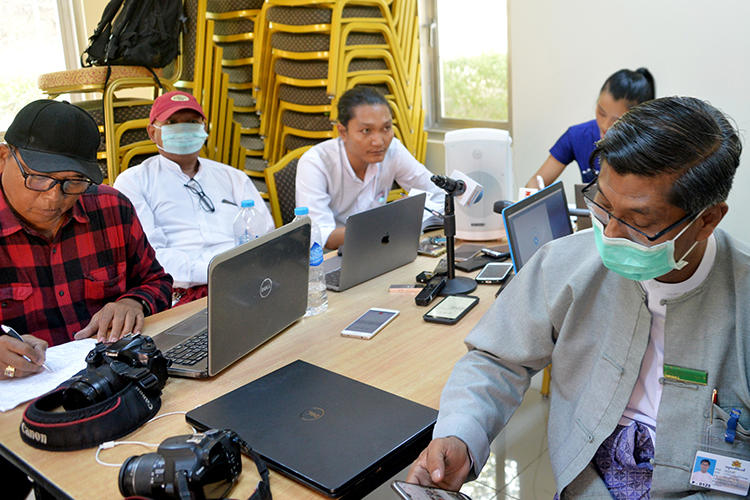Bangkok, April 2, 2020 – Myanmar should lift its order to block news websites and cease all efforts to censor the press, the Committee to Protect Journalists said today.
In late March, the Ministry of Communications and Transport ordered local mobile internet service providers to block 221 websites, including websites it claimed published “fake news,” according to news reports and a public statement issued by Telenor Myanmar, a telecommunications operator.
Telenor’s statement said that the order was made under section 77 of the Telecommunications Law, which allows authorities to order telecom license holders to block websites in “emergency situations,” and cited the ongoing COVID-19 pandemic as a motivation for the blocks. The statement said the telecom provider blocked 154 websites with “adult/explicit” content on March 23, and expanded the block to include 67 alleged “fake news” websites on March 30, at the government’s request.
The country’s four telecom operators have implemented the orders in varying degrees, with some websites available on certain networks and blocked on others, according to news reports.
“Myanmar should immediately lift its order to block news websites for allegedly publishing ‘fake news.’ Such orders will only stifle independent and critical reporting within the country,” said Shawn Crispin, CPJ’s senior Southeast Asia representative. “This type of crude censorship and harassment was supposed to stop in Myanmar’s transition from military to elected rule.”
The Ministry of Communications and Transport did not immediately respond to CPJ’s emailed request for comment.
Local independent websites owned by Development Media Group and the outlets Narinjara News, Mandalay In-Depth News, Mekong News, and Voice of Myanmar, among others, have all had their websites blocked by the order, according to The Irrawaddy.
Authorities have recently targeted Voice of Myanmar, Narinjara News, and outlets owned by the Development Media Group over their coverage of the insurgent Arakan Army, according to news reports and CPJ research.
Aung Marm Oo, editor of the Rakhine State-based Development Media Group, told CPJ by email that two of his company’s news websites were blocked by the order.
“[The ban] is really worrying for media freedom amidst the deadly coronavirus pandemic,” Aung Marm Oo told CPJ. He is currently in hiding from charges filed against him under the Unlawful Association Act over his journalism, as CPJ has documented.
